| |
|
|
|
|
A Wren church, although perhaps it doesn't quite
look it from the outside. The unusual dedication comes
from the fact that the King's wardrobe (ie, clothing
store) had been moved from the Tower of London to near
here in the 14th Century. Both wardrobe and original
church were destroyed in the fire. The Wren office
rebuilt St Andrew between 1685 and 1694 along the
medieval plan with aisles and a clerestory. Thus, the
formal genius of Wren inscribed itself on a Gothic
outline without falling into the obvious pitfalls of
adding Gothic details, which one imagines would have been
an easy temptation for Wren to resist. From the north the
church is pleasingly lost in a tangle of alleyways, and
you can imagine the young Betjeman in the 1920s pausing
to
...stand by intersecting lanes
Among the silent offices and wait,
Choosing which bell to follow: not a peal,
For that meant somewhere active; not St Paul's
For that was too well-known. I liked things dim -
Some lazy Rector living in Bexhill
Who most unwillingly on Sunday came
To take the statutory services.
A single bell would tinkle down a lane:
My echoing steps would track the source of sound...
But on the south side the wide vista opened up in the
late 19th Century for the new Queen Victoria Street
spoils the mystery, exposing it more than was ever
planned, for successive restorations in the 18th and 19th
Century have removed the charm of the church that Wren
rebuilt. However, this was never a wealthy parish, and
the interior generally survived the fussy ministrations
of 19th Century ritualists and restorers.
St Andrew was gutted on Sunday 29th December 1940 by
German bombs. The interior was completely burned out,
destroying one of the most complete 17th Century
interiors in the City. The walls survived. This is a big
church, and the decision was taken to hive off the aisles
for other uses. That to the north was converted into
offices which for many years were home to the Redundant
Churches Fund. In the south aisle there is a truncated
chapel, with vestries beyond. Happily, many of the
fittings from churches demolished in the late 19th and
early 20th Centuries had been placed in safe storage, and
so St Andrew was repopulated with some older furnishings,
including the pulpit, font and font cover from St Matthew
Friday Street, and the royal arms from St Olave Jewry.
St Andrew is usually
open, but the main glass doors into the church from the
western narthex are not. Nonetheless, you can see pretty
much all there is to see, an entirely rebuilt interior in
the college style, like a less atmospheric version of St
Vedast. It is hard to get excited by it, although one
thing you can't see is the 18th Century glass in the west
window. The chapel in the south aisle is open. It is very
simple, and has 1968 glass by Carl Edwards, somewhat
quieter than the excitements of his great scheme at
Temple Church a decade earlier. In one window, St Anne
teaches the Blessed Virgin to read outside the south
front of St Andrew, which, like the approach to the
church from the north, is also rather pleasing.
Simon Knott,
December 2015
location: Queen Victoria Street, EC4V 5DE -
1/008
status: guild church
access: 10am-4pm Monday to Friday (though glass
nave doors may be left locked)
 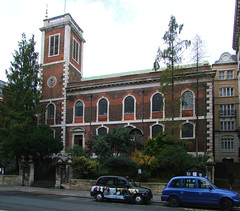 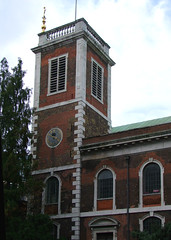 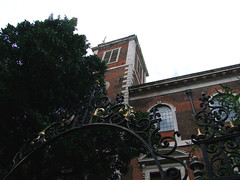 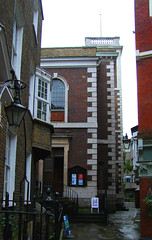 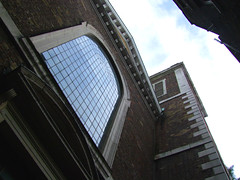 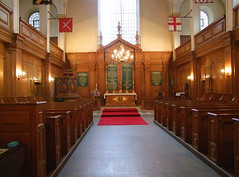 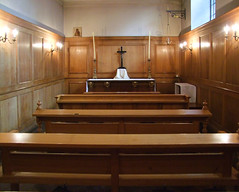 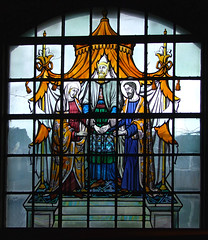 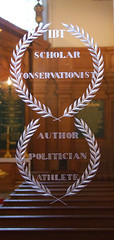 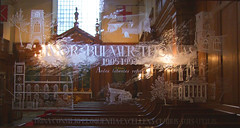 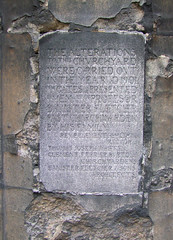
Commission
from Amazon.co.uk supports the running of this site
|
|
|
|
|
|



